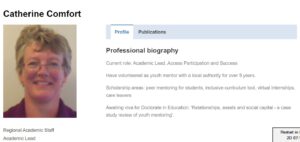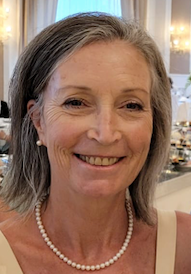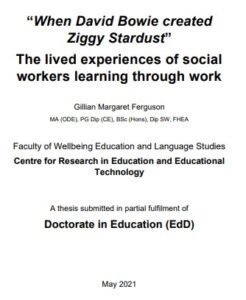Relationships, Assets and Social Capital: A Case Study Review of Youth Mentoring
by Dr Catherine Comfort
Abstract
 Youth mentoring, where young people (mentees) work with adult mentors to achieve change, is a popular government and third sector intervention. Past research, concentrating on quantitative analysis of US programmes, concludes that mentoring achieves significant but modest change. Such research assumes that changes from mentoring can be externally identified and measured, often without hearing the views of those involved.
Youth mentoring, where young people (mentees) work with adult mentors to achieve change, is a popular government and third sector intervention. Past research, concentrating on quantitative analysis of US programmes, concludes that mentoring achieves significant but modest change. Such research assumes that changes from mentoring can be externally identified and measured, often without hearing the views of those involved.
This study investigates the experiences and expectations of mentoring from the perspective of mentees, mentors, referring agencies and programme coordinators. Using social capital theory (Bourdieu, 1986; Coleman, 1988; Putnam, 2000), the study explores how mentoring relationships are built and their role in bringing about change.
A local authority youth mentoring programme in the UK formed the case study for investigating experiences of mentoring and perceptions of change. To allow nuanced exploration of views, an interpretive, qualitative approach was taken. Data were collected from mentors, mentees, referring agencies and coordinators via semi-structured interviews, survey, diaries, focus groups and programme feedback. Data collection and thematic analysis were informed by social capital theory.
Findings indicated that mentees actively participating in the mentoring process benefitted most. Mentees experienced unusual levels of equality in the purposeful and trusting mentoring relationship. Drawing on the relationship’s social capital, mentees enhanced their assets and enjoyed emotional support, learning and challenge. Collaborating with mentors, mentees achieved previously inaccessible outcomes. Assets developed could be used in other relationships.
The study also concludes that social capital and asset acquisition provide a theoretical basis for understanding the mentoring process. By encouraging asset and social capital exchange, mentoring develops mentees’ self-awareness, agency, and confidence, increasing the likelihood of resilience. This knowledge may be transferable to other programmes and relationships. Supporting young people’s knowledge of their needs and strengths through mentoring may contribute to their wellbeing post 2019 Covid pandemic.
You may read the full thesis here: http://oro.open.ac.uk/87092/







